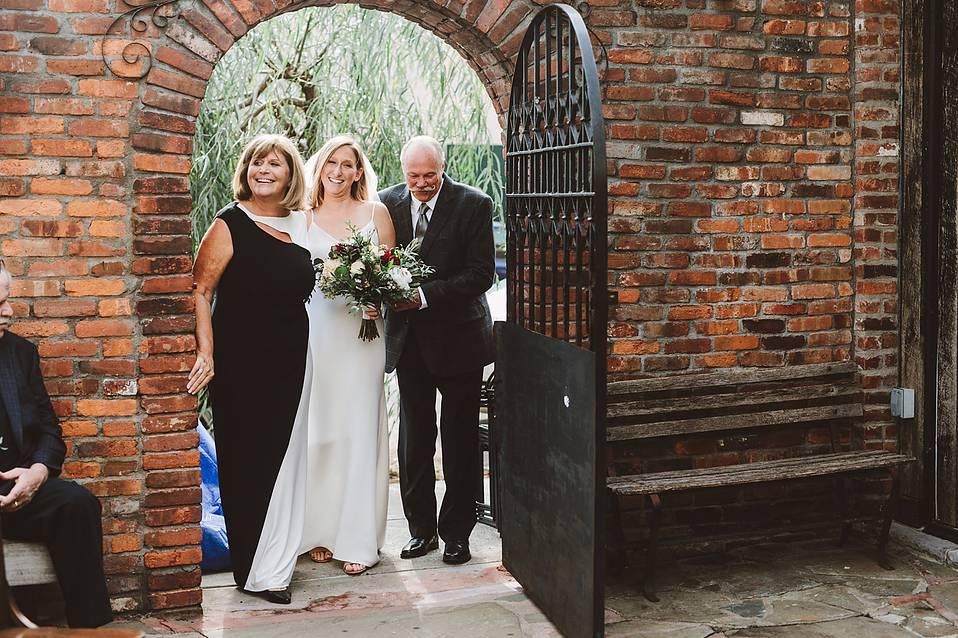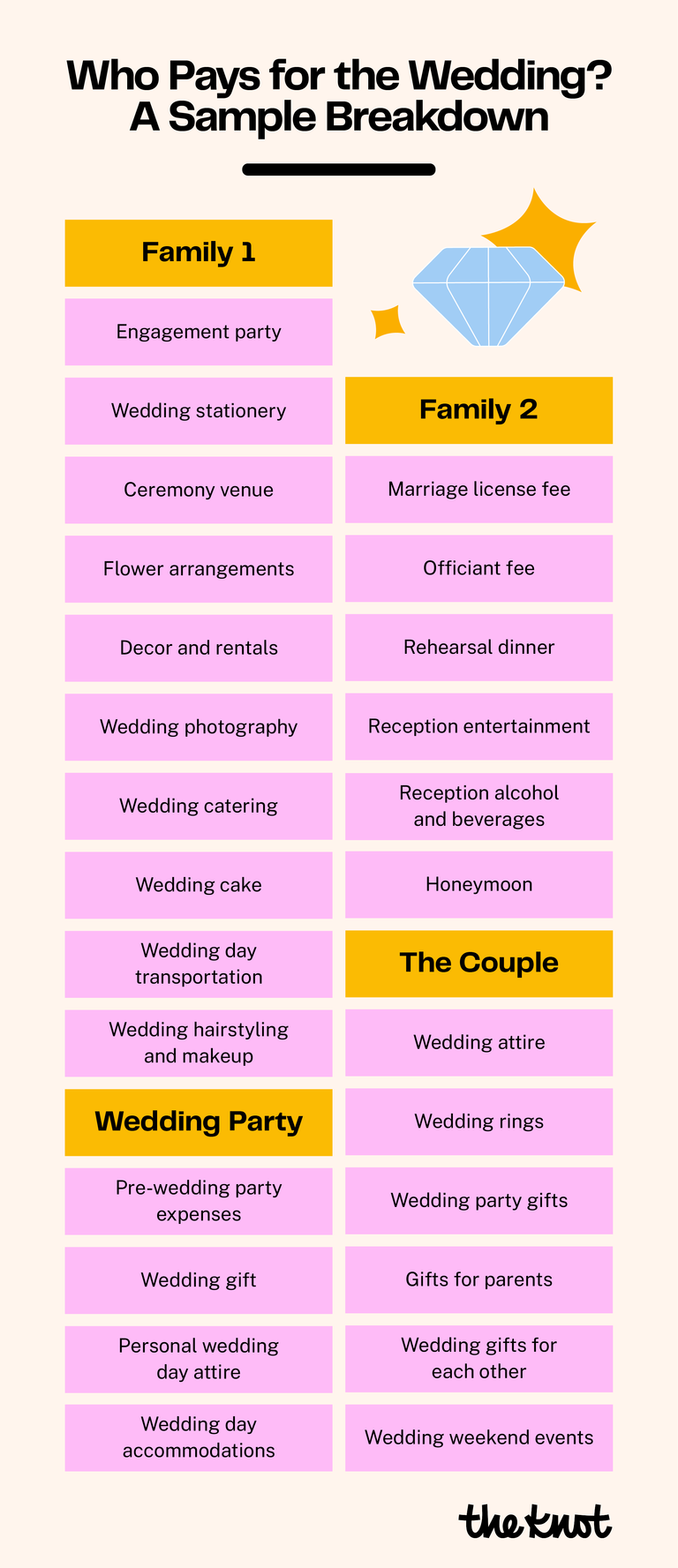The Bride’s Family Has Historically Covered Wedding Costs
Traditionally, the bride’s family pays for the wedding. This custom dates back centuries to when daughters were considered their family’s responsibility until they married and joined their husband’s family. The bride’s parents hosted the wedding and covered all associated expenses as a way of fulfilling their duty and transitioning care of their daughter to her new spouse.
Some key reasons this tradition emerged include:
- Women moved into their husband’s household after marriage so the bride’s family hosted the celebration
- Dowries and hope chests were used to equip brides with goods for married life
- Lower average wages historically made it hard for couples to independently finance weddings
Modern Couples Take on More Financial Responsibility
While the bride’s family paying is still considered traditional etiquette, many modern couples contribute financially or cover the full wedding costs themselves. Some reasons for this shift include:
- Couples marrying later in life and established in careers
- More egalitarian views of gender roles and marriage
- Increased costs make it impractical for one family to handle alone
- Blended family dynamics with divorce and remarriage
Despite growing trends of shared expenses, surveys still show the bride’s family contributes the largest portion, on average, often including:
- Venue rental
- Catering
- Wedding cake
- Wedding dress
- Florist and decorations
- Invitations
- Music/entertainment
- Wedding planner
- Transportation
The Groom’s Family Handled Select Expenses
There were also some standard expenses connected to the groom’s family. Although smaller than the bride’s family’s contribution, these costs for the groom’s family traditionally included:
-
- Wedding rings for both bride and groom
- Officiant’s wedding fee
- Bride’s wedding bouquet and ceremonial flowers
- Boutonnieres and corsages
- Rehearsal dinner
- Honeymoon expenses
- Marriage license
Paying for Modern Weddings Takes Teamwork
Current norms involve more fluid and collaborative budgeting between families. With weddings averaging around $30,000 in cost, it’s unrealistic for one side to handle everything. New dynamics like blended families also play a role.
While traditions offer helpful guidelines, couples ultimately decide what works best for their situation. From covering all costs themselves to asking parents to contribute certain elements, most couples piece together money from various sources. Compromise and communication are key!
Potential Contributor Breakdown
Here is an overview of who may offer to pay for different wedding elements:
-
-
- Couple – attire, rings, honeymoon, rehearsal dinner, decor
- Bride’s parents – ceremony venue, catering, cake, flowers
- Groom’s parents – rehearsal dinner, officiant fees, liquor
- Close relatives – wedding dress, invitations, photography
- Wedding party members – bachelor/bachelorette parties
-
Saving and Budgeting Strategies
From saving over time to setting priorities, couples use various approaches to budget for wedding costs:
-
-
- Open a designated wedding savings account
- Use wedding registries for cash gifts and essential items
- Compare vendor quotes and negotiate rates
- Set a realistic budget cap based on resources
- Consider cost vs guest count trade-offs
- Focus spending on photography, food, music – most guest-facing elements
- Save money on attire by borrowing or buying off the rack
-
Who Pays Ultimately Depends on the Couple
While customs provide loose guidelines, how wedding expenses get covered comes down to the couple’s specific resources and vision. From large, traditional affairs to intimate elopements, priorities vary greatly. The best approach involves open conversations and financial transparency before cementing plans.
By outlining must-haves, weighing family dynamics, and setting budgets early on couples can map out wedding costs smoothly. Traditions shouldn’t impose financial strain but rather provide a flexible framework couples can tailor to their needs and priorities.



